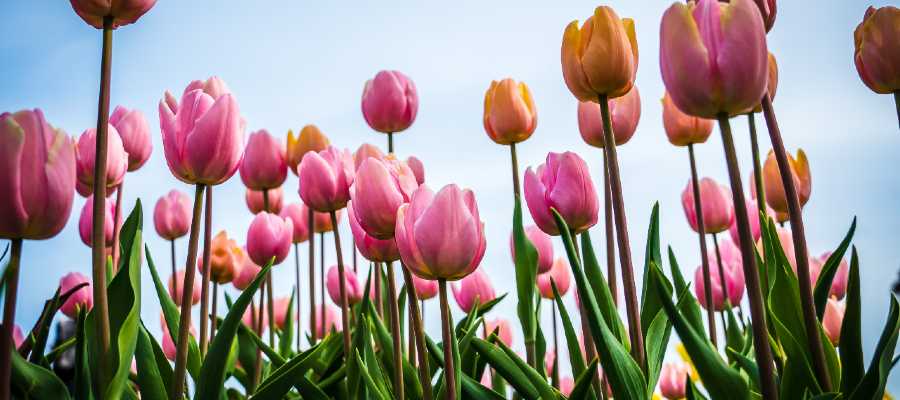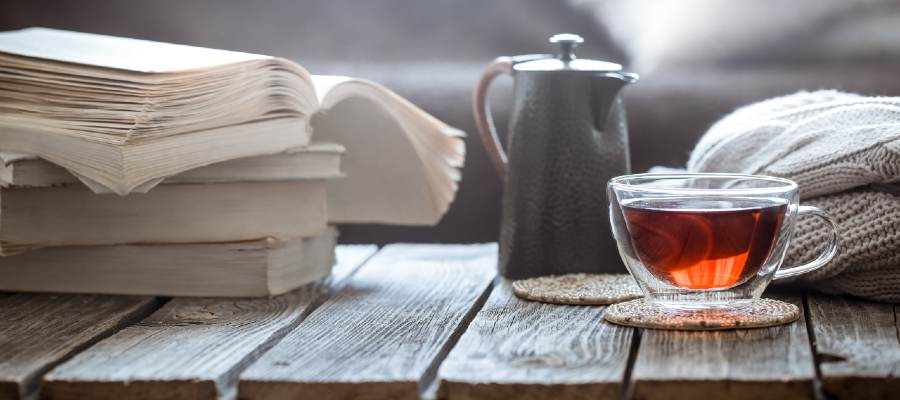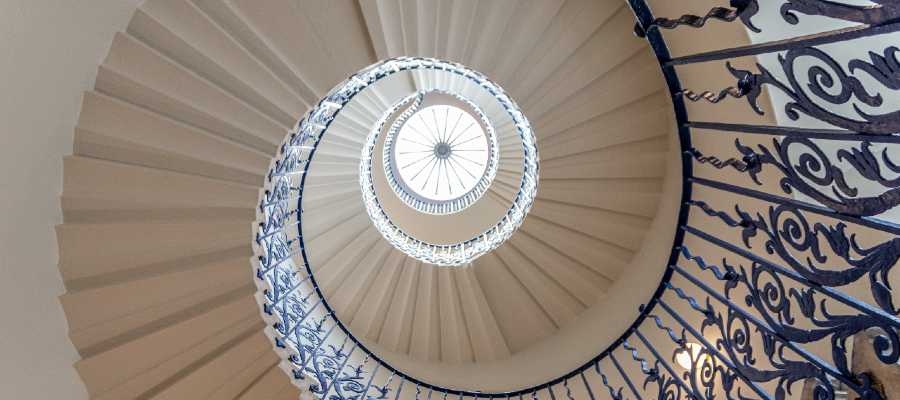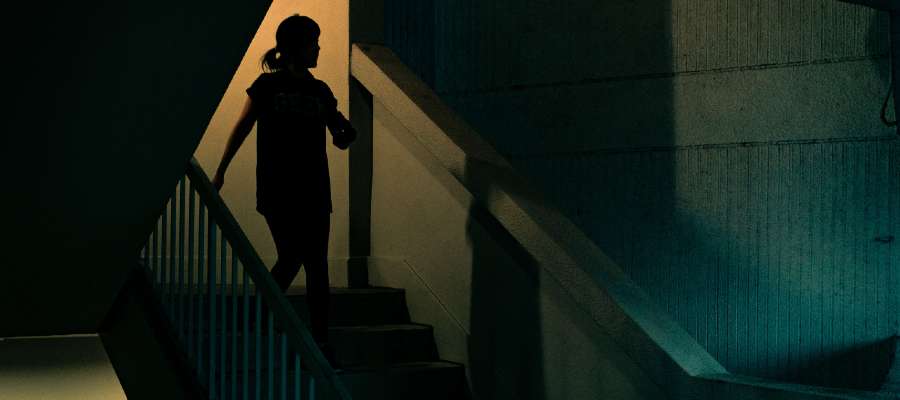Online Creative Writing Courses, Ideas and Inspiration
Welcome to Creative Writing Now! This website and our writers' email group were created by writing teachers as a free service to support authors at all stages of their writing lives.
Below is a selection of our online creative writing courses. Join our Advance Notification List to learn when new courses open up.
10 Online Creative Writing Courses You Can Start Today

*FREE*! Endless Story Ideas
In this course, you'll learn how to generate story ideas whenever you need them. This three-day email course is currently available for free! Fill out the form below, and you'll get one lesson per day over the next three days.

*FREE*! Endless Story Ideas
In this course, you'll learn how to generate story ideas whenever you need them. This three-day email course is currently available for free! Fill out the form below, and you'll get one lesson per day over the next three days.

The Craft of Fiction
Have you ever wondered what separates amateur fiction from the work of accomplished authors?
When you read a book by your favorite writers, you can feel the difference. Their prose flows beautifully, their characters feel alive, and their stories feel rich and immersive. But what exactly creates this magic?
The secret lies in advanced fiction techniques that most writing courses never teach. While typical writing courses cover the basics, they leave out other skills like:
- Choosing the right amount of detail to include
- Showing the passage of time in a story
- Zooming in and out
- Using internal dialogue
- Transitioning between scenes
- Giving your story multiple layers.
In this comprehensive course, suitable for both beginners and experienced writers, you'll master the often-invisible techniques behind effective fiction.
By the end of the course, you'll have the tools to write fiction that meets your own high standards—stories you'll feel proud to share with the world.

The Craft of Fiction
Have you ever wondered what separates amateur fiction from the work of accomplished authors?
When you read a book by your favorite writers, you can feel the difference. Their prose flows beautifully, their characters feel alive, and their stories feel rich and immersive. But what exactly creates this magic?
The secret lies in advanced fiction techniques that most writing courses never teach. While typical writing courses cover the basics, they leave out other skills like:
- Choosing the right amount of detail to include
- Showing the passage of time in a story
- Zooming in and out
- Using internal dialogue
- Transitioning between scenes
- Giving your story multiple layers.
In this comprehensive course, suitable for both beginners and experienced writers, you'll master the often-invisible techniques behind effective fiction.
By the end of the course, you'll have the tools to write fiction that meets your own high standards—stories you'll feel proud to share with the world.

Story Structure
Have you ever read a book or watched a movie where the events felt random, as if there wasn't any point?
Compare this to the experience of reading or watching a great story, which holds your attention and makes you care what's happening. In a successful story, the events feel like they're connected and like they're going somewhere. They seem to add up to something.
This structure, the way the events are connected to each other and build on each other, makes all the difference for the reader. It's like the difference between a pile of bricks and boards and a solidly constructed house.
In this course, we'll talk about how to make all of the parts of your stories fit together in a way that's gripping, meaningful, and satisfying.
By the end of the course, you'll have a detailed story plan that you can use as road map for your own stories or novels.
What you'll learn:
- how to build a plot and character arc that work together
- how to craft the beginning, middle, and ending of a story
- how to organize your story in a powerful and meaningful way.

Story Structure
Have you ever read a book or watched a movie where the events felt random, as if there wasn't any point?
Compare this to the experience of reading or watching a great story, which holds your attention and makes you care what's happening. In a successful story, the events feel like they're connected and like they're going somewhere. They seem to add up to something.
This structure, the way the events are connected to each other and build on each other, makes all the difference for the reader. It's like the difference between a pile of bricks and boards and a solidly constructed house.
In this course, we'll talk about how to make all of the parts of your stories fit together in a way that's gripping, meaningful, and satisfying.
By the end of the course, you'll have a detailed story plan that you can use as road map for your own stories or novels.
What you'll learn:
- how to build a plot and character arc that work together
- how to craft the beginning, middle, and ending of a story
- how to organize your story in a powerful and meaningful way.

Essentials of Poetry Writing
In his book Poetry in the Making, the poet Ted Hughes talks about how to write a poem about a landscape. "We do not want a photograph," he says, "we want a film with exactly the right music, and the music is the most important."
Like other kinds of writing, poetry can communicate information or tell a story. But at the same time that it speaks to the logical part of our brains, it also works on deeper level, speaking to our emotions.
This second level can function like the mood music in a movie, affecting and intensifying our feelings about what's happening on the screen.
When we're watching a movie, we might not always be aware of this background music, but we feel it all the same, and our body reacts -- tensing when the music becomes suspenseful, relaxing when the music is upbeat.
In this course, you'll learn to create this mood music in your own poetry. You'll learn how to craft not only the logical, informational level of the poem, but also this deeper emotional level.

Essentials of Poetry Writing
In his book Poetry in the Making, the poet Ted Hughes talks about how to write a poem about a landscape. "We do not want a photograph," he says, "we want a film with exactly the right music, and the music is the most important."
Like other kinds of writing, poetry can communicate information or tell a story. But at the same time that it speaks to the logical part of our brains, it also works on deeper level, speaking to our emotions.
This second level can function like the mood music in a movie, affecting and intensifying our feelings about what's happening on the screen.
When we're watching a movie, we might not always be aware of this background music, but we feel it all the same, and our body reacts -- tensing when the music becomes suspenseful, relaxing when the music is upbeat.
In this course, you'll learn to create this mood music in your own poetry. You'll learn how to craft not only the logical, informational level of the poem, but also this deeper emotional level.

Bringing Characters to Life
Have you ever read a book where the characters felt alive to you, where they started to feel like actual people that you cared about?
If readers care about your characters, they'll care about your story. They'll feel afraid when your character's in danger and will rejoice in your character's triumphs. They'll be gripped by suspense to find out what happens to your character, and they won't want to put your story down.
In this course, you'll learn how to perform the magic that turns fictional characters into living people in the reader's mind.

Bringing Characters to Life
Have you ever read a book where the characters felt alive to you, where they started to feel like actual people that you cared about?
If readers care about your characters, they'll care about your story. They'll feel afraid when your character's in danger and will rejoice in your character's triumphs. They'll be gripped by suspense to find out what happens to your character, and they won't want to put your story down.
In this course, you'll learn how to perform the magic that turns fictional characters into living people in the reader's mind.

Essentials of Memoir Writing
A memoir is a true story, written by someone who was part of it.
Writing a memoir is a way to capture and preserve your memories. Your memoir might be a gift and legacy to your family, or you might decide to publish it.
Memoirs are special because they let readers live other people's lives and have experiences they would ordinarily never have. Memoirs let readers feel what it's like to be someone else.
No matter what your life experiences, you can turn them into a great memoir. This course will show you how.
What you'll learn:
- how to find ideas and material for your memoir.
- how to recreate your memories vividly on the page .
- how to give your memoir a meaningful structure and focus.
- how to make your memoir stand out.

Essentials of Memoir Writing
A memoir is a true story, written by someone who was part of it.
Writing a memoir is a way to capture and preserve your memories. Your memoir might be a gift and legacy to your family, or you might decide to publish it.
Memoirs are special because they let readers live other people's lives and have experiences they would ordinarily never have. Memoirs let readers feel what it's like to be someone else.
No matter what your life experiences, you can turn them into a great memoir. This course will show you how.
What you'll learn:
- how to find ideas and material for your memoir.
- how to recreate your memories vividly on the page .
- how to give your memoir a meaningful structure and focus.
- how to make your memoir stand out.

Mastering Dialogue
Without dialogue, a story can be like watching TV with the sound turned off. Maybe it's still possible to follow the plot, but it's hard to get as emotionally involved. By adding dialogue, you're turning up the volume for your readers.
You can use dialogue to bring your characters to life, to move your plot forward, and improve the pace of your storytelling. This course will show you how.
You'll learn:
- how to create a unique voice for each of your characters.
- how use dialogue to improve your character development, plot, pacing, and setting.
- how to achieve the right mix of "showing" and "telling".
- how add layers of meaning to your dialogue.

Mastering Dialogue
Without dialogue, a story can be like watching TV with the sound turned off. Maybe it's still possible to follow the plot, but it's hard to get as emotionally involved. By adding dialogue, you're turning up the volume for your readers.
You can use dialogue to bring your characters to life, to move your plot forward, and improve the pace of your storytelling. This course will show you how.
You'll learn:
- how to create a unique voice for each of your characters.
- how use dialogue to improve your character development, plot, pacing, and setting.
- how to achieve the right mix of "showing" and "telling".
- how add layers of meaning to your dialogue.

Irresistible Fiction
Have you ever read a book that you really had trouble putting down?
This kind of book can make you stay up late reading. It can make you late for appointments, make you cancel other plans. "I'll just finish this page," you tell yourself. "I'll just finish this chapter. Just one more..."
This course will show you how to make your own stories more addictive so that readers will get drawn in and feel compelled to keep turning pages.
On the one hand, you'll make readers feel deeply involved in your stories, as if they have skin in the game.
On the other hand, you'll use techniques to build excitement, curiosity and suspense, for irresistible results.

Irresistible Fiction
Have you ever read a book that you really had trouble putting down?
This kind of book can make you stay up late reading. It can make you late for appointments, make you cancel other plans. "I'll just finish this page," you tell yourself. "I'll just finish this chapter. Just one more..."
This course will show you how to make your own stories more addictive so that readers will get drawn in and feel compelled to keep turning pages.
On the one hand, you'll make readers feel deeply involved in your stories, as if they have skin in the game.
On the other hand, you'll use techniques to build excitement, curiosity and suspense, for irresistible results.

Through Your Character's Eyes
"Narrative point of view" or "narrative viewpoint" is the perspective from which your story is told. It is readers' doorway into your story.
If you use narrative viewpoint effectively, it lets readers experience your story like a dream, as if they're actually inside it. You can make readers feel as if they actually become one of your characters for a while, as if they get to live the story, instead of only reading it.
In this course, you'll learn how.
The choices you make about narrative viewpoint will affect every aspect of how you write your story; for example:
- which events you show as scenes.
- your character development strategies.
- how you write descriptions.
It will also affect every aspect of the reader's experience:
- how close the reader feels to your characters.
- the sights, smells, sounds, and sensations that the reader imagines.
- the reader's emotional reactions to the events that take place.
In this course, you'll learn how to use narrative viewpoint to give readers the best possible experience of your story.

Through Your Character's Eyes
"Narrative point of view" or "narrative viewpoint" is the perspective from which your story is told. It is readers' doorway into your story.
If you use narrative viewpoint effectively, it lets readers experience your story like a dream, as if they're actually inside it. You can make readers feel as if they actually become one of your characters for a while, as if they get to live the story, instead of only reading it.
In this course, you'll learn how.
The choices you make about narrative viewpoint will affect every aspect of how you write your story; for example:
- which events you show as scenes.
- your character development strategies.
- how you write descriptions.
It will also affect every aspect of the reader's experience:
- how close the reader feels to your characters.
- the sights, smells, sounds, and sensations that the reader imagines.
- the reader's emotional reactions to the events that take place.
In this course, you'll learn how to use narrative viewpoint to give readers the best possible experience of your story.

Mystery Writing
Mystery stories play on our natural curiosity. The author raises a question near the beginning of the story and doesn't reveal the answer until the end. As readers wonder about the question and try to guess the answer, their curiosity builds.
Many mysteries are written as intellectual puzzles, a kind of game the author plays with readers. This gamelike aspect can make mysteries especially fun to plan and to write.
This course will take you you step-by-step through the process of planning and writing a mystery. In a way, you'll work backwards, starting with the secret that your readers will discover at the story's end. We'll look at how you can use this secret to create a fascinating trail of clues, how to pull your readers along that trail, and how to keep them burning with curiosity the whole way.

Mystery Writing
Mystery stories play on our natural curiosity. The author raises a question near the beginning of the story and doesn't reveal the answer until the end. As readers wonder about the question and try to guess the answer, their curiosity builds.
Many mysteries are written as intellectual puzzles, a kind of game the author plays with readers. This gamelike aspect can make mysteries especially fun to plan and to write.
This course will take you you step-by-step through the process of planning and writing a mystery. In a way, you'll work backwards, starting with the secret that your readers will discover at the story's end. We'll look at how you can use this secret to create a fascinating trail of clues, how to pull your readers along that trail, and how to keep them burning with curiosity the whole way.

Be a Writer Now
This is a special course where you overcome blocks and obstacles to become the writer you want to be. You’ll learn how to find time for writing, avoid writer’s block, and stay motivated, creative, and productive.
Here’s what previous students have said about this course:
- “I had been stuck in my current work for at least a year, writing hardly anything at all. The accountability sheet forced me to write every day, and I wanted to. Now at the end of the course, I think I’m 90% done with my book.” – Anne Nowlin
- “I find my writing flows better and ideas seem to flood into my brain. Since starting the course I have a new confidence when starting a piece of writing.” – Christine Henderson
- “This has been the most productive, creative month I’ve had.” – Nancy Pazner
Enter your email to be notified when this course reopens.

Be a Writer Now
This is a special course where you overcome blocks and obstacles to become the writer you want to be. You’ll learn how to find time for writing, avoid writer’s block, and stay motivated, creative, and productive.
Here’s what previous students have said about this course:
- “I had been stuck in my current work for at least a year, writing hardly anything at all. The accountability sheet forced me to write every day, and I wanted to. Now at the end of the course, I think I’m 90% done with my book.” – Anne Nowlin
- “I find my writing flows better and ideas seem to flood into my brain. Since starting the course I have a new confidence when starting a piece of writing.” – Christine Henderson
- “This has been the most productive, creative month I’ve had.” – Nancy Pazner
Enter your email to be notified when this course reopens.

Description Writing Magic
Imagine writing fiction so vivid that readers feel as if they've physically entered your story...
The room where they're sitting seems to disappear, and they pass into a parallel world with characters who seem as real as the people they know.
Readers might even feel homesick when your story ends as if it were an actual place where they long to return.
This course will show you the techniques you need to create this kind of intense experience for readers.
Enter your email to be notified when this course reopens.

Description Writing Magic
Imagine writing fiction so vivid that readers feel as if they've physically entered your story...
The room where they're sitting seems to disappear, and they pass into a parallel world with characters who seem as real as the people they know.
Readers might even feel homesick when your story ends as if it were an actual place where they long to return.
This course will show you the techniques you need to create this kind of intense experience for readers.
Enter your email to be notified when this course reopens.
Questions about online creative writing courses? Email us, and we'll help you.
Looking specifically for free online creative writing courses? Browse options here.
To stay informed about new online creative writing courses, join our Advance Notification List.